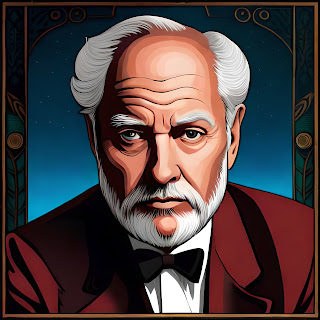"The Illuminatus! Trilogy" is a complex and unconventional work of speculative fiction written by Robert Shea and Robert Anton Wilson. Published in the 1970s, it is a satirical and thought-provoking exploration of conspiracy theories, secret societies, and the nature of reality itself. Comprised of three books – "The Eye in the Pyramid," "The Golden Apple," and "Leviathan" – the trilogy weaves together multiple narratives, perspectives, and genres to create a sprawling and mind-bending story.
The narrative begins with two protagonists, Hagbard Celine and Joseph Malik, who find themselves embroiled in a web of conspiracies involving various secret organizations such as the Illuminati, the Discordians, and the Bavarian Illuminati. Through their journeys, the authors delve into a wide range of historical events, philosophical concepts, and occult practices, challenging readers to question the boundaries of knowledge and perception.
The plot unfolds through a non-linear and disjointed structure, employing a range of storytelling techniques including stream-of-consciousness prose, epistolary sections, and metafictional elements. The authors incorporate a multitude of characters, each with their own motivations and allegiances, blurring the line between reality and fiction. The narrative style itself becomes a part of the overall exploration of the themes, allowing the authors to experiment with different narrative devices and challenge traditional storytelling conventions.
As the story progresses, it becomes clear that the real focus of the trilogy is not on unraveling a coherent plot but on deconstructing and subverting the idea of conspiracy theories themselves. Shea and Wilson employ humor, absurdity, and irony to highlight the inherent contradictions and irrationality present in the pursuit of hidden truths. By presenting conflicting perspectives and deliberately ambiguous information, they emphasize the subjective nature of reality and the difficulty of discerning objective facts from subjective interpretations.
Throughout the trilogy, the authors touch upon a wide range of subjects, including politics, philosophy, religion, quantum physics, and occultism. They draw upon various conspiracy theories and mythologies, intertwining them into a complex tapestry that challenges readers to question their own assumptions and beliefs. The narrative is filled with literary allusions, cultural references, and philosophical musings, requiring active engagement from the readers to fully appreciate the layers of meaning present within the text.
"The Illuminatus! Trilogy" has achieved cult status and garnered a dedicated following due to its unconventional and challenging nature. It serves as a critique of dogmatic thinking, institutional power, and the human tendency to seek hidden patterns and meaning in the chaos of the world. Shea and Wilson's work invites readers to embrace uncertainty, embrace the absurd, and engage in critical thinking while acknowledging the limitations of human knowledge.
In summary, "The Illuminatus! Trilogy" is a sprawling and intricate work of speculative fiction that defies categorization. Through its unconventional narrative structure and exploration of conspiracy theories and secret societies, it challenges readers to question their perceptions of reality and invites them to embrace a more open-minded and skeptical approach to the world. With its blend of humor, philosophy, and social commentary, the trilogy continues to provoke thought and inspire readers to examine the hidden forces that shape our lives.

